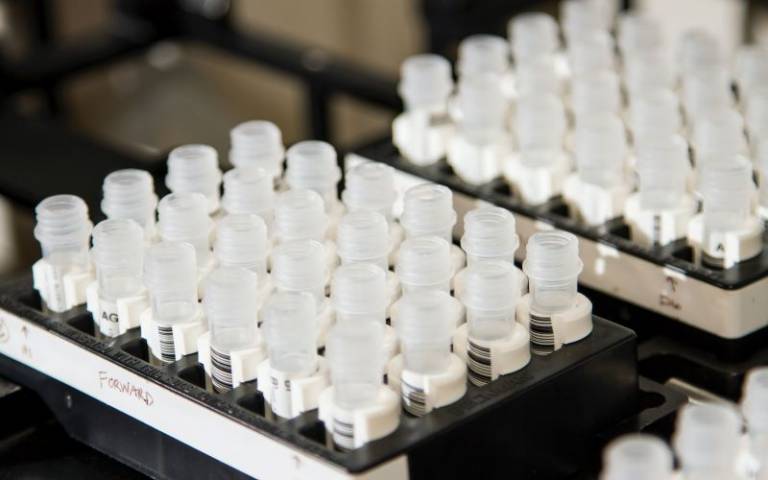UCL biotech spinout receives $250 million investment
12 November 2021
UCL spinout, Autolus, which is dedicated to developing methods of re-programming the immune system to target and kill cancer, has raised $250 million (£185 million) from Blackstone Life Sciences.

The US investment management company is providing the funding to help support Autolus’ advancement of its CD19 CAR T-cell investigational candidate, obecabtagene autoleucel (obe-cel), alongside next generation product therapies of obe-cel in B-cell malignancies to treat leukaemia.
It is the largest ever private financing of a UK biotech company from a single source.
Autolus was founded in 2014 upon the work of Dr Martin Pule, an academic clinical haematologist and pioneer in T-cell engineering based at the UCL Cancer Institute*.
Autolus was spun-out of UCL by UCL Business (UCLB), UCL’s commercialisation company.
Dr Martin Pule said "The UCL CAR T cell programme is at the cutting edge of cell-based cancer treatments. Partnerships with industry allow us to progress our technology to larger confirmatory clinical studies and onwards to changing clinical practise.”
With a global headquarters in London, Autolus now employs over 400 people.
Dr Anne Lane, CEO of UCLB says, “This investment is a testament to the great technology behind Autolus, which stems from many years of research originating at the UCL Cancer Institute. We look forward to continuing to support Autolus as it brings this technology to the clinic, providing patient benefit.”
Professor David Price, UCL Vice-Provost (Research, Innovation & Global Engagement) said: “Congratulations to Autolus on this well-deserved and significant achievement.
“This is excellent news for the future of cancer treatment and is a testament to the research and innovation of Dr Martin Pule, his colleagues and the UCL Cancer Institute.
“The funding will provide a solid foundation to translate the new technologies into healthcare benefits for patients.”
UK Science Minister George Freeman said: “This is another vote of confidence in the quality of life science in the UK, reinforcing our reputation as a world leader in discovering new cures for currently untreatable diseases like Autolus’ T cell therapy drugs for leukaemia.
“Big investments like these give real hope to those suffering from diseases like leukaemia – and create high skill jobs and opportunities in the development and manufacturing of treatments to help develop and boost our life science clusters all around the UK.”
The news comes after Autolus was given the green light for a new £65 million global headquarters in Stevenage, in August.
The 70,000sq ft dedicated manufacturing facility will help secure global commercial launch capacity for obe-cel.
UCLB sits within UCL Innovation & Enterprise. They are a group of specialists who support UCL’s community to realise the potential of their ideas and take them out into the wider world for the benefit of society and the economy.
* The UCL CAR T cell programme: https://www.ucl.ac.uk/cancer/research/ucl-car-t-programme
Links
Images
- Credit: National Cancer Institute on Unsplash
Media contact
Poppy Danby
Email: p.danby [at] ucl.ac.uk
 Close
Close

